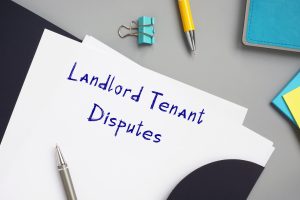 Residential tenants have many more protections than commercial tenants because residential tenants have less bargaining power, or so the law presumes. It is, therefore, much easier to evict a commercial tenant than a residential one. After all, the employees will still have a home to go to post-eviction. Under California law, the power shifts to the landlord in these agreements. Nonetheless, disputes tend to harm both parties, and resolving them tends to be a matter of coming up with a better agreement. Still, it’s important to understand your rights as both a tenant and a landlord when it comes to commercial leases. In this article, our San Jose real estate attorney will discuss how to manage commercial landlord-tenant disputes.
Residential tenants have many more protections than commercial tenants because residential tenants have less bargaining power, or so the law presumes. It is, therefore, much easier to evict a commercial tenant than a residential one. After all, the employees will still have a home to go to post-eviction. Under California law, the power shifts to the landlord in these agreements. Nonetheless, disputes tend to harm both parties, and resolving them tends to be a matter of coming up with a better agreement. Still, it’s important to understand your rights as both a tenant and a landlord when it comes to commercial leases. In this article, our San Jose real estate attorney will discuss how to manage commercial landlord-tenant disputes.
Eviction
There is no guarantee of habitability; a commercial tenant has limited options when it comes to leveraging a landlord to make repairs. Rent cannot be withheld, even in escrow, and there is no guarantee that repairs will be made unless it is in the lease. The covenant to pay rent supersedes all other considerations when it comes to commercial tenancies. A commercial landlord may send an eviction notice for a lease violation or the failure to pay and the commercial tenant will only have three days to respond. Clauses in the lease may prevent you from suing or prevent you from asserting rights as an evictee. Again, the language will be contained in the lease, so it must be read carefully.
 Business Lawyers Blog
Business Lawyers Blog

